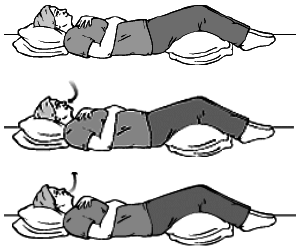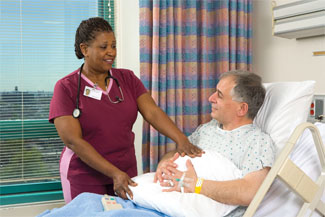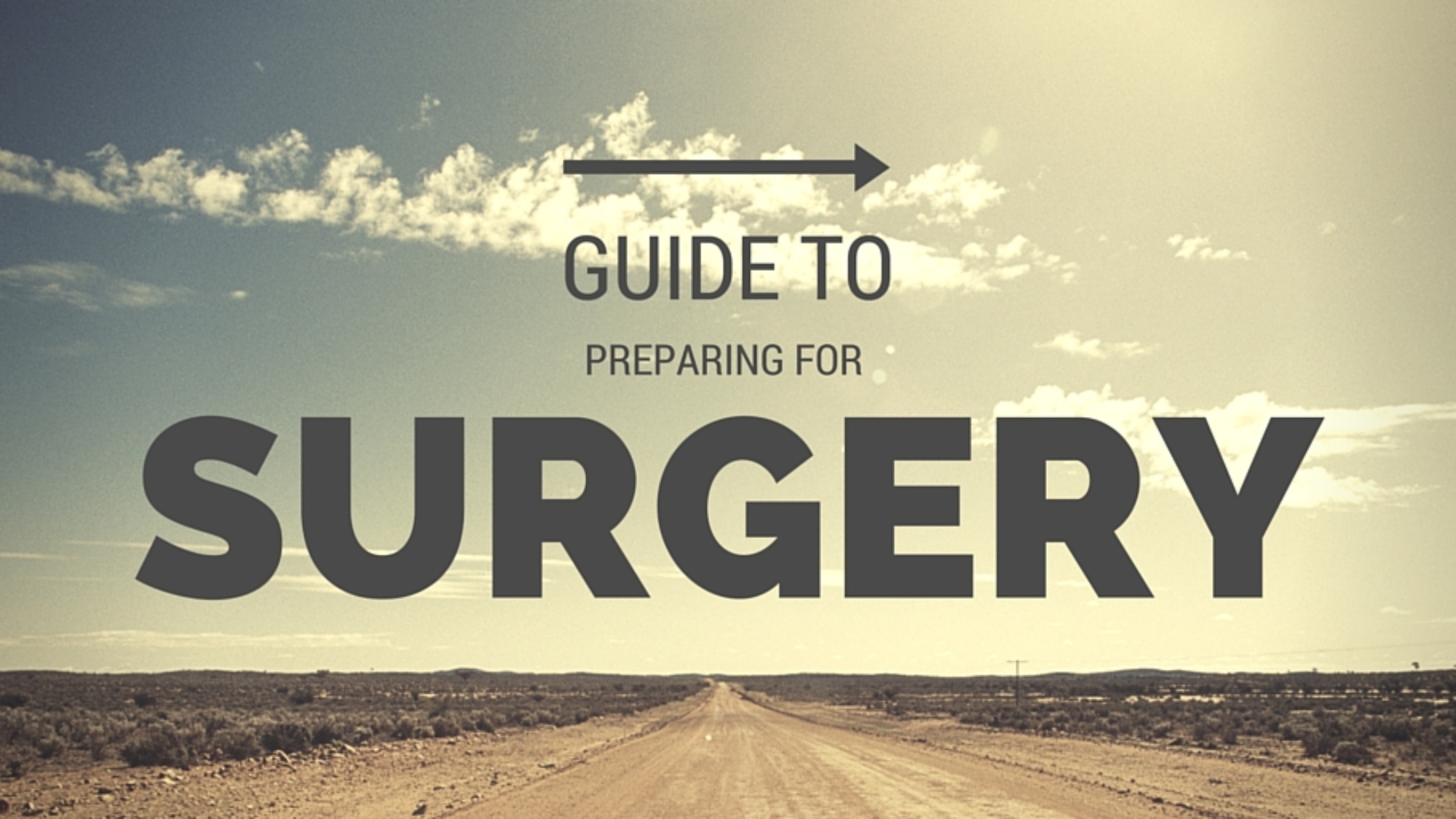HOW TO DEEP BREATHE
After your surgery, you’ll need to deep breathe several times an hour, to keep your lungs fully expanded. By deep breathing, you’ll speed your recovery, and reduce the risk of developing breathing problems as you get well.
To deep breathe correctly, you must use your diaphragm and abdominal muscles — not just your chest muscles. This exercise teaches you how. Practice it two or three times a day before surgery. That way, you’ll be able to do it more easily after surgery.
1. Lie on your back in a comfortable position. Place one hand on your chest, and the other over your upper abdomen, as shown here.
Flex your knees slightly. Relax.

Deep breathing technique
Exhale normally. Then, close your mouth, and inhale deeply through your nose. As you do, concentrate on feeling your abdomen rising, without expanding your chest. If the hand on your abdomen rises as you inhale, you’re breathing correctly. Hold your breath, and slowly count to five.
2. Purse your lips, as though you’re about to whistle, and exhale completely through your mouth. (Don’t let your cheeks puff out.)
Using your abdominal muscles, squeeze all the air out. Your ribs should sink downward and inward.
Rest several seconds; then continue the exercise until you’ve done it five to ten times.
3. If you’re having abdominal surgery, you may be more comfortable if you hold a pillow over your incision, as shown here. Lace your fingers together across the pillow to hold it in place. Then, perform the deep breathing exercise as described above.

Note: You may also perform this exercise while lying on your side, sitting, standing, or as you’re turning in bed.
WHAT TO BRING TO THE HOSPITAL
Please bring the following with you to the hospital.
- Bring all current medications
- Robe
- Non-skid slippers
- Toiletries such as toothbrush, toothpaste, comb, brush, deodorant
- Glasses, contact lenses with their cases, if used
- Dentures with their container, if used
- Hearing aid, if used
- Cane or walker, if used
- If you were hospitalized previously, bring your own Voldyne, TED’s or CPM leggings
- Mobile phone charges
- Spare change of clothes
Also note the following:
Leave your valuables such as watches or jewelry at home.



Add a Comment